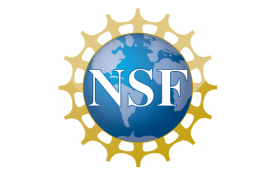-

NSF Graduate Research Fellowship Program Call for Reviewers
On behalf of the National Science Foundation (NSF), APS invites you to register as a potential application reviewer for the 2021-2022 Graduate Research Fellowship Program (GRFP) competition.
-
Channel All That Rage Into Your Workout
When I was in high school, I was not particularly athletic. I sat the bench on the junior varsity baseball team and quit freshman basketball after two weeks. And yet, I still wanted to find a sport that was right for me, so I got into rock climbing. I wasn’t good at that either, but I loved the feeling it gave me. Climbing seemed to center me. On Friday I’d be a distracted mess of hormones and teen angst. On Sunday, I would dangle 80 feet off the ground, scared out of my gourd, and by Monday schoolwork just seemed easier. How did something so terrifying make the world feel less chaotic and stressful?
-

Share Your Social Determinants of Health Research and Insights with APS
Members of the U.S. Congress are interested in better understanding the effects of social and economic conditions on health. This is an opportunity for APS Members to ensure that psychological science plays a part in future health-related programs and policies.
-
The Opposite of Toxic Positivity
Countless books have been written on the “power of gratitude” and the importance of counting your blessings, but that sentiment may feel like cold comfort during the coronavirus pandemic, when blessings have often seemed scant. Refusing to look at life’s darkness and avoiding uncomfortable experiences can be detrimental to mental health. This “toxic positivity” is ultimately a denial of reality. Telling someone to “stay positive” in the middle of a global crisis is missing out on an opportunity for growth, not to mention likely to backfire and only make them feel worse.
-
Returning to the Office Will Be Hard. Here’s How Managers Can Make It Easier.
Many leaders are contemplating a full or partial return to the office post-pandemic. As they consider this, they tend to think of employees in two opposite groups: those who are eager to return and those who are opposed. However, it’s important to recognize that some of the people who want to return to a shared workspace may nonetheless feel discomfort, some significantly so. Even after the acute danger of a crisis has passed, stress-related behaviors — whether the result of specific health concerns or the spillover of challenging family or economic situations — don’t magically disappear.
-
Yes, Age Does Make Us More Generous
Like many people in their 60s, I feel that I’m less driven and ambitious than I used to be. I find myself thinking more about helping my students and children and grandchildren. But do we really get more generous and altruistic as we get older? Two new studies suggest that we do and that this change in our motivations runs deep. Earlier studies had already provided some evidence that this might be true, finding that older people donate more money to charity both in real life and in hypothetical experiments and, like me, say that they care more about others.

